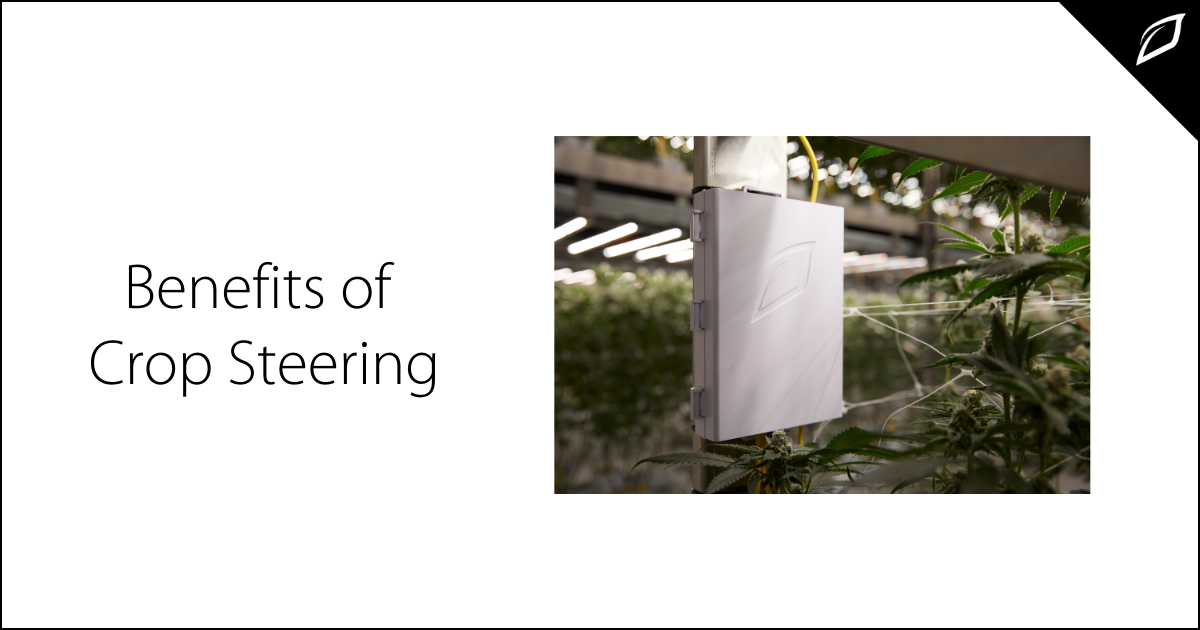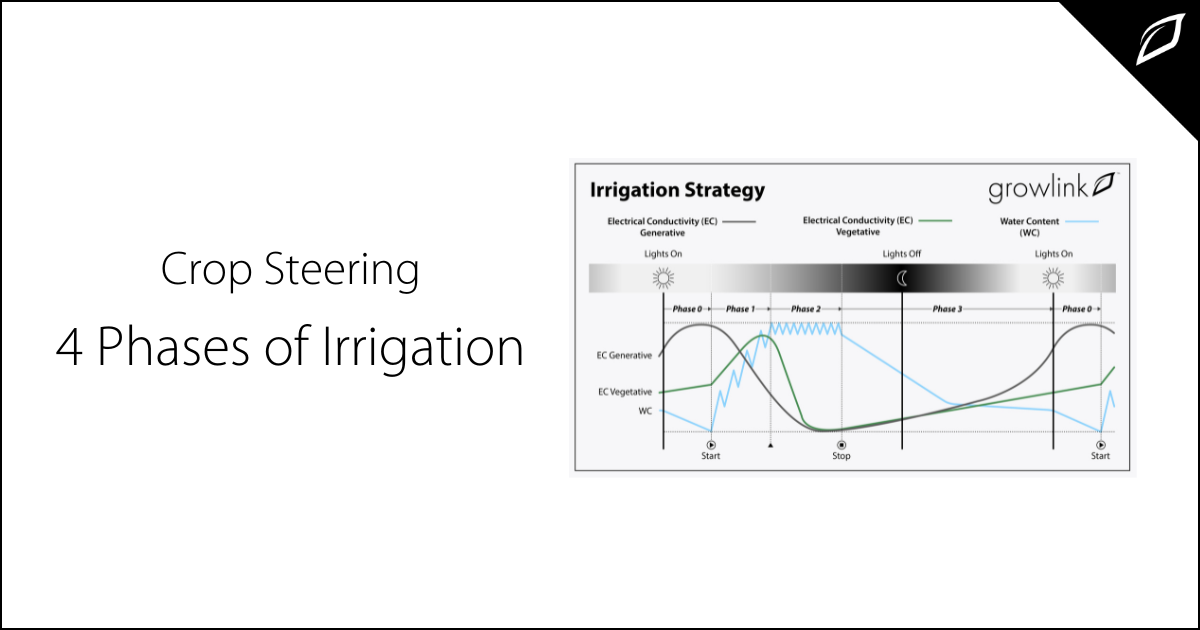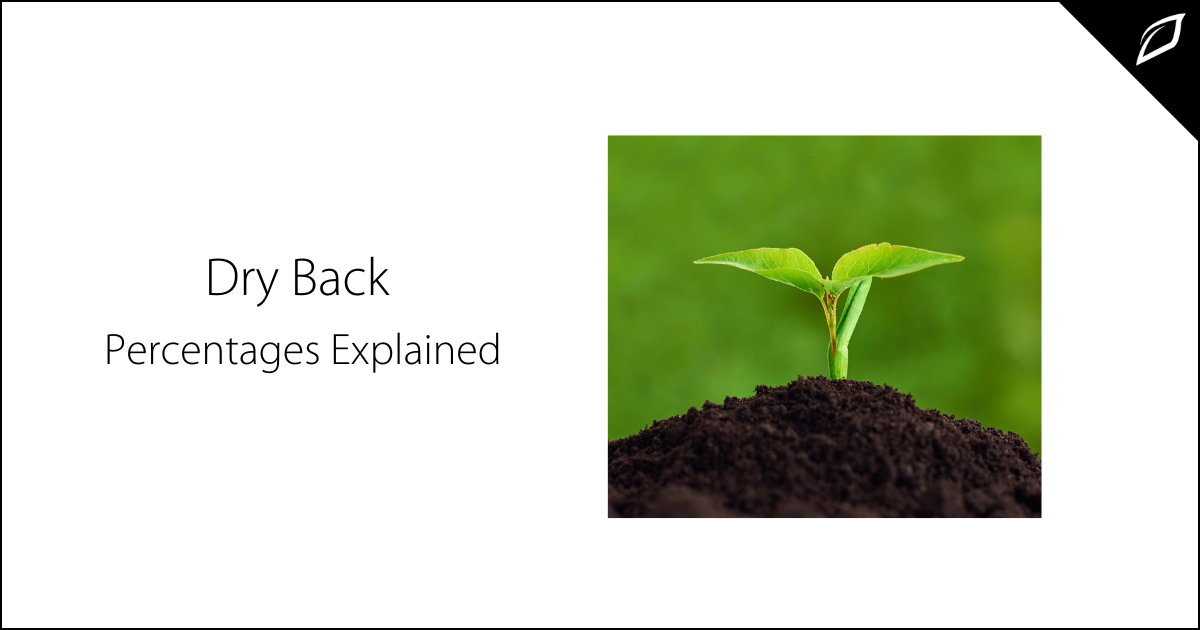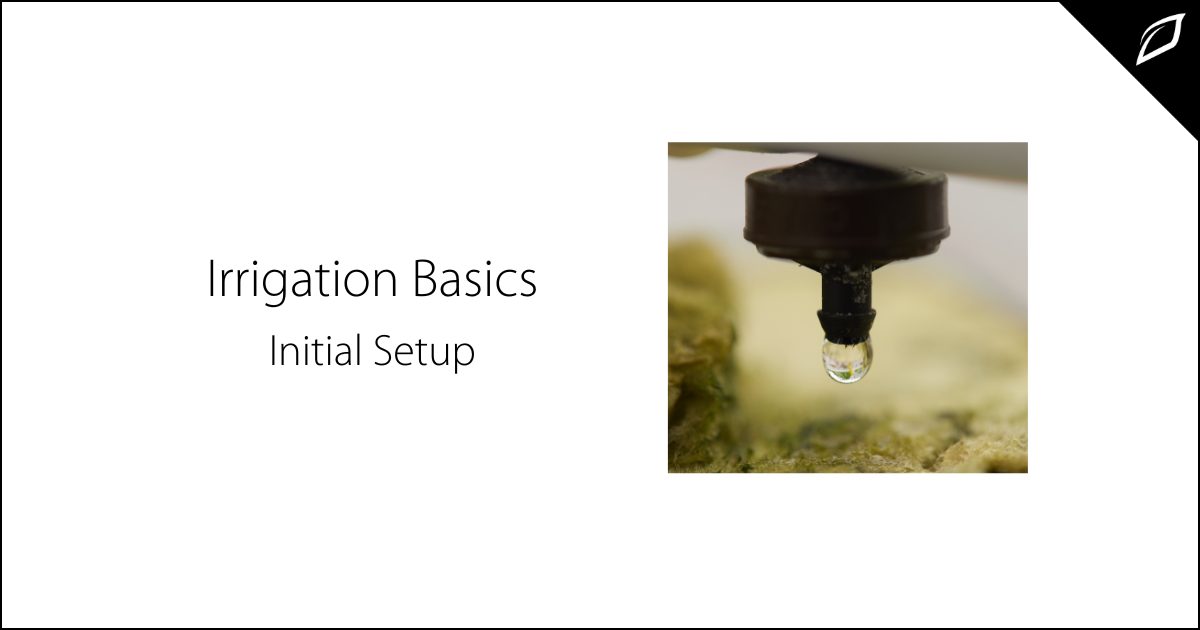Crop Steering - 4 Phases of Irrigation
Crop steering manipulates a plant's environment and root zone to influence metabolic/hormonal changes that inspire vigorous growth and greater...
2 min read
Joy King : Updated on April 21, 2023

With so much conversation around crop steering, but with limited information available, we wanted to research why it's become such a trend in indoor, and greenhouse cannabis grows. And as it turns out, it's all the rage because the benefits are substantial enough to encourage cultivars to experiment and dial in precise techniques. Let's get into it.
What is crop steering?
Crop steering manipulates plant growth by modifying environmental factors and irrigation events to encourage coveted crop outcomes. Changing environmental factors and irrigation strategies allows growers to influence growth toward vegetative or generative stages.
The vegetative growth stage increases leaf and stem growth, while generative growth is the reproductive phase that develops fruits and flowers.
Potential benefits of crop steering.
The potential for crop steering to increase yields, save labor and nutrient costs, and enhance crop quality are notable reasons to research and implement a crop steering program. There's also the possibility to decrease energy and overall operations costs, but let's examine the most notable potential benefits of crop steering.
Increased yields - By manipulating plant growth to optimize the development of specific growth phases, you encourage more prominent and robust buds, which, if done correctly, will increase yields.
Cost Savings - Labor costs may decrease by completely automating the process using a crop steering program (CSP). Another advantage in using a CSP is that precise, small dosing of nutrients means your plants only take up the number of nutrients they can process, potentially saving you money in expensive nutrients.
Enhanced Terpene Production - Using a CSP, you'll be stacking buds towards the end of the cannabis plant growth cycle, and altering lighting can trigger an increase in trichome production of terpenes. By tricking the plant into a moderate stressor, it responds by increasing terpene production to protect it from excess UV light exposure.
What is a Crop Steering Program (CSP)?
A crop steering program allows you to enter customized, ideal setpoints for your specific genetics, and the program will automatically trigger events to achieve the desired parameters. For irrigation, a sophisticated AI program analyzes your substrate sensors' real-time data and doses your plants accordingly, freeing up your time to take care of everything else.
Crop Steering Program Features
Controlling environmental conditions and irrigation strategies to steer growth requires sophisticated software created by expert growers and engineers. Let's take a look at the features that make a CSP a worthwhile investment.
Overnight Failsafe Protection - The program will constantly monitor your substrate and give it an emergency shot if it falls below your target overnight VWC% and will continue to maintain it at that percentage until the lights come on the following day.
Automatic Phase 1 Delay - If you run into an issue involving a temporary decrease in plant transpiration, it will manifest as a slower dry back than usual. Adjust your irrigation timers to accommodate this decrease in VWC % loss to prevent over-saturation. When the lights turn on, the program will automatically count down the additional dry back % you specify and delay your P1 ramp up timers until the set percentage has been satisfied.
EC Adjustment - Substrates EC is crucial to crop steering successfully but can be challenging without changing the EC of your feeds throughout the day. By using the Crop Steering Program, you can specify your maintenance dry back %.


Crop steering manipulates a plant's environment and root zone to influence metabolic/hormonal changes that inspire vigorous growth and greater...

We are often asked, “What dry back percentage should I shoot for?” Unfortunately, there is no one size fits all solution to this question. Let’s go...

Picture this; you’ve built out your indoor grow room or vertical farm to perfection and loaded in multiple different genetics that you’ve been dying...